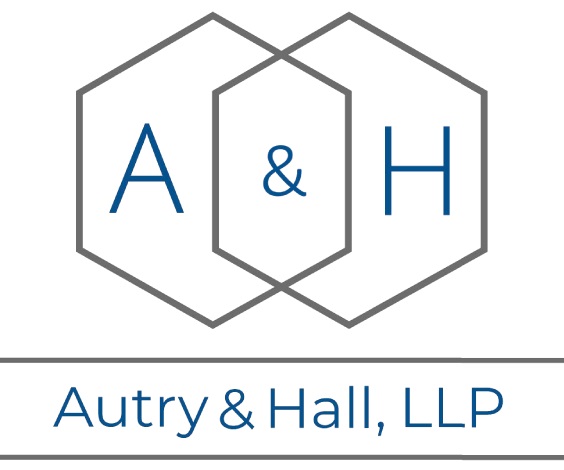Directors of cooperatives play a pivotal role in ensuring that their organizations operate effectively, ethically, and in alignment with their members’ interests. For directors serving on the boards of both a federated cooperative and one of its member cooperatives, these responsibilities become even more complex. Balancing fiduciary obligations to two distinct entities with potentially overlapping but not always identical goals requires a thorough understanding of governance, transparency, and ethics. In this post, we will explore the fiduciary duties of such directors and offer practical insights into navigating the unique challenges they face. This post is a follow-up to our prior post regarding fiduciary duties.
A. Understanding Federated Cooperatives and Dual Board Memberships
A federated cooperative is a cooperative entity composed of other cooperatives as its members. These federated structures allow member cooperatives to pool resources, access broader markets, and achieve economies of scale in purchasing goods and services. Directors of a federated cooperative are typically chosen from among the member cooperatives, creating a scenario where some directors serve dual roles — on the board of both the federated cooperative and the board of a member cooperative. Such a dual role creates the potential for conflicts of interest, divided loyalties, and ethical dilemmas. Understanding fiduciary obligations is crucial for directors in these dual roles to effectively manage their responsibilities. We recommend discussing specific situations with counsel to the board of directors.
B. The Core Fiduciary Duties
As discussed in our prior post, directors owe fiduciary duties to the cooperative on whose board they serve. These duties include the duty of loyalty, duty of care, duty of confidentiality, and duty of obedience. How do these apply to dual-role directors?
- Duty of Loyalty
The duty of loyalty requires directors to act in the best interests of the cooperative they serve, avoiding conflicts of interest and prioritizing the cooperative’s welfare over personal or external interests.
- In the Federated Cooperative: When serving as a director of the federated cooperative, the individual must act in the best interests of the membership as a whole. This may require prioritizing the collective good of all member cooperatives, even if a particular decision has a negative impact on the director’s own member cooperative.
- In the Member Cooperative: Conversely, when serving as a director of the member cooperative, the individual’s duty of loyalty shifts to the members of that cooperative. The director must advocate for decisions that advance the member cooperative’s specific interests and benefit the membership of that cooperative.
Balancing these loyalties is challenging when the interests of the federated cooperative and the member cooperative diverge. For instance, a federated cooperative may decide to allocate costs across its members in a way that serves the best interest of the members as a whole, but negatively impacts specific members. A dual-role director must navigate these situations carefully, ensuring transparency and proper disclosure of any conflicts.
- Duty of Care
The duty of care requires directors to make decisions with the diligence, prudence, and informed judgment expected of a reasonable person in a similar position.
- Directors should take the time to fully understand the implications of decisions for both the federated cooperative and the member cooperative.
- Dual-role directors must avoid favoring one cooperative over the other without a clear, justifiable rationale. For example, decisions at the federated level should reflect consideration of their impact on all member cooperatives, not just the one the director represents.
- Duty of Confidentiality
The duty of confidentiality obligates directors to protect sensitive information obtained in their role and to use it only for the benefit of the cooperative they serve.
- Challenge: A director may learn information in one role that could benefit the other cooperative. For example, strategic plans at the federated level might impact the operations of the member cooperative.
- Solution: The director must respect the confidentiality of both entities. Sharing confidential information without proper authorization could breach fiduciary obligations and erode trust between the cooperatives and among directors on the board.
- 4. Duty of Obedience
The duty of obedience requires directors to ensure that the cooperative operates within its governing documents, bylaws, and applicable laws.
- Directors must familiarize themselves with the bylaws, policies, and procedures governing both cooperatives and ensure that their actions are compliant with these frameworks.
- This duty underscores the importance of understanding how decisions at the federated level affect compliance at the member level and vice versa.
C. Managing Conflicts of Interest
Given the overlapping responsibilities in dual roles, conflicts of interest are almost inevitable. Managing these conflicts effectively is critical to maintaining trust and fulfilling fiduciary obligations. Strategies for managing conflicts include:
- Disclosure:
- Directors should proactively disclose potential conflicts to both boards. Transparency allows both cooperatives to address conflicts openly and collaboratively.
- Recusal:
- In situations where a conflict is significant, the director should consider recusing themselves from discussions or votes to avoid the appearance of impropriety.
- Adherence to Policies:
- Both cooperatives should have clear conflict of interest policies. Directors must adhere to these policies and seek guidance when uncertain.
- Board Training:
- Cooperatives should institute a board training process that assists with training new directors and provides continuing training for incumbent directors. This will ensure that all directors are made familiar with conflict of interest policies.
- Legal Counsel:
- For complex issues, consulting legal counsel can help directors navigate conflicts while fulfilling their fiduciary duties. Cooperatives often have board counsel that can provide guidance on such issues.
D. Conclusion
Serving as a director on the boards of both a federated cooperative and a member cooperative is a demanding but rewarding responsibility. By understanding and adhering to fiduciary obligations, dual-role directors can navigate the complexities of these roles, fostering trust and collaboration between the cooperatives. In doing so, they help ensure the long-term success and sustainability of both cooperatives and benefit the members they are entrusted to serve.
If your cooperative has questions about trademarks, please call or email Roland Hall at (404) 406-8594 or [email protected]
This post is for informational purposes only and does not constitute legal advice. Viewing this content does not create an attorney-client relationship.

